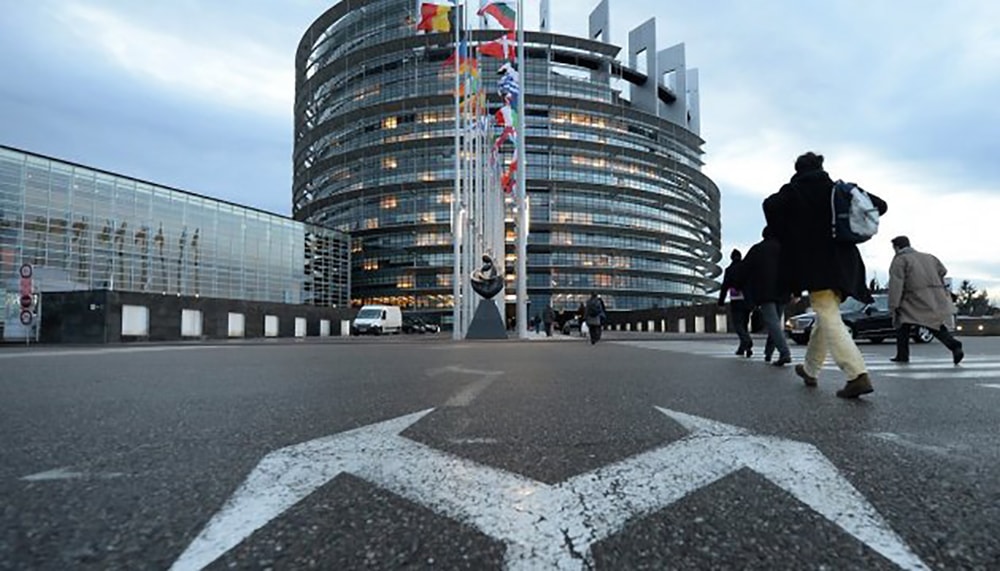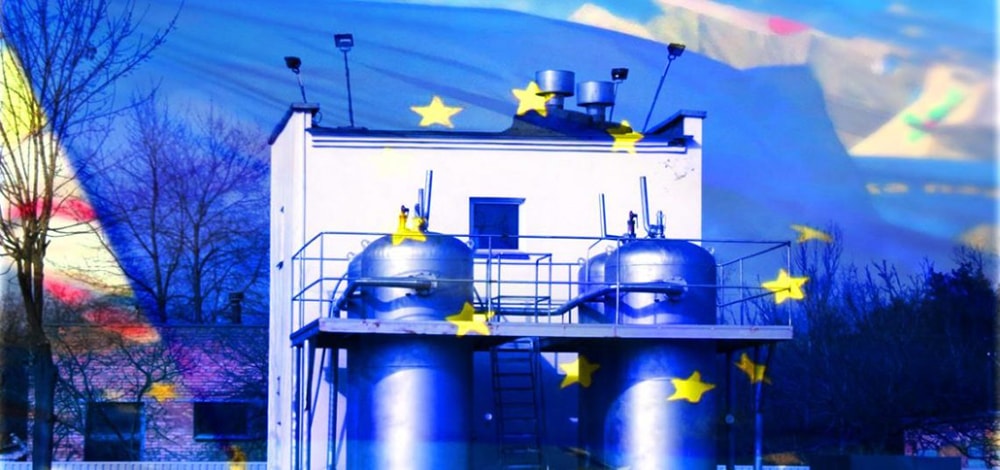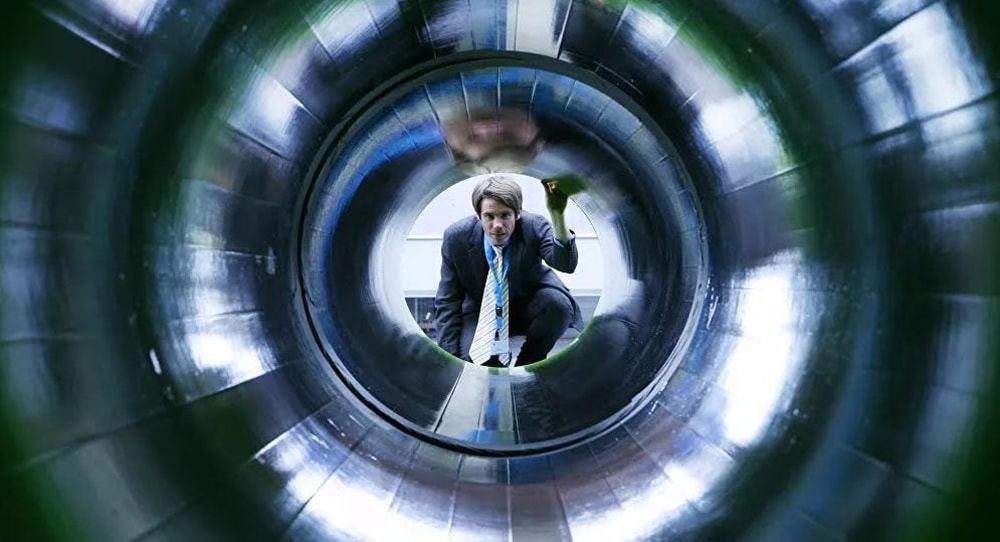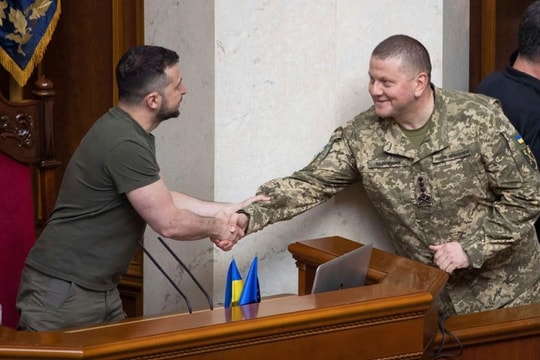Nord Stream 2: Can Germany withstand the pressure?
(Baonghean.vn) - The European Parliament has just passed a resolution calling on all member countries to abandon the Nord Stream 2 project, even though the project has completed 90% of its work.
The European Parliament sees this as a way for Europe to demonstrate a strong and unified stance on the suspected poisoning of Russian opposition leader Aleksei Navalny. But as in so many previous cases, Europe has faced internal divisions over how to respond to Russia's actions, and this time the country that Europe has had the hardest time convincing is Germany.
“Catalyst” Navalny
ProjectNord Stream 2is an ambitious Russian-German gas pipeline project, connecting abundant gas supplies from Russia to the German market and Western European countries. The project will build a pipeline under the Baltic Sea, passing through the territorial waters or exclusive economic zones of Russia, Finland, Sweden, Denmark and Germany.
The Nord Stream 2 project is worth 11 billion USD, half invested by Russia's Gazprom Group, the other half divided equally among 5 European energy companies: OMV, Wintershall Dea, Engie, Uniper and Shell.
 |
| The European Parliament calls on member states to stop the Nord Stream 2 project. Photo: Euro News |
The new pipeline has the capacity to transport 55 billion m3natural gas per year, meeting about a third of the European Union's future gas import needs. With the completion of Nord Stream 2, virtually all of Europe's natural gas from Russia will be supplied via pipelines under the Baltic Sea or via another new underwater pipeline, TurkStream, under the Black Sea, to the south, reducing dependence on transit routes through Ukraine, which have become increasingly difficult to negotiate due to the armed conflict there.
Most European countries are concerned that the project will further increase their dependence on imported gas from Russia.
Nord Stream 2 has long been met with mixed opinions in Europe. Apart from the countries directly involved in the project, especially Germany, most European countries are concerned that the project will increase dependence on imported gas from Russia in the context of the relationship between Russia and Europe still in a state of tension since the event.Russia annexed the Crimean peninsulaEuropean leaders believe that gas is not only a source of economic revenue for Russia but also a political tool that Russian President Vladimir Putin is willing to use in his relations with Europe, especially in the competition for influence in Eastern European countries.
What happened in Ukraine is a clear demonstration of this, when gas prices were pushed up or Russia cut supplies when Ukrainian officials showed a tendency to lean towards the West. European countries are also worried that, once Nord Stream 2 is completed, Russia will be like a “tiger with wings”. The more routes to bring gas to Europe, the more Russia will have the conditions to put pressure on the countries through which Russian pipelines pass, simply by closing or opening the valve!
 |
| Europe fears Nord Stream 2 will make the continent even more dependent on gas from Russia. Photo: Getty |
However, under Germany's fierce protection, Nord Stream 2 is still being built despite many criticisms. Although the progress is delayed due to the impact of the Covid-19 epidemic, the pipeline is still expected to be put into operation in mid-2021. Nothing would have changed if not for the incident in which Europe accused Russia of poisoning the leader of the opposition.Aleksei Navalny- an accusation that Russia has strongly denied. The incident has served as a “catalyst” for Europe to try to reach a unified stance on Nord Stream 2.
In a resolution adopted by members of the European Parliament, the European Parliament called on member states to “boycott” Nord Stream 2, saying that the poisoning of Mr. Navalny with the nerve agent Novichok was part of a “systematic effort” by Russian President Vladimir Putin’s government to suppress the opposition. The resolution also called on the European Union to quickly draw up a list of measures against Russia as soon as possible and to tighten existing sanctions. European Commission President Ursula von der Leyen also reiterated that many political figures in Russia were suspected of being poisoned, so Europe needed to use Russian gas pipelines to pressure Russia to change.
Germany "dilemma"
However, the resolution passed by the European Parliament is a non-binding resolution, meaning that whether or not to abandon Nord Stream 2 is still the final decision of each member state. And immediately, all attention is focused on Germany - the country with the most pivotal role in this project in Europe. Therefore, Germany is currently said to be under great pressure about whether to "go" or "stay" in this project.
 |
| Diagram of the Nord Stream 2 project. Photo: Forbes |
In terms of image, Germany is currently holding the positionRotating Chairmanshipof the European Union, a position where Germany needs to clearly demonstrate its pioneering role in strengthening European solidarity, including a unified response in the bloc's foreign relations. In addition, the Aleksei Navalny incident is fueling long-suppressed discontent in Europe regarding figures suspected of being poisoned by Russia.
Even within the German government itself, there are strong voices supporting the European Union’s view that it is time to take tough measures against Russia. The head of the German parliament’s foreign affairs committee, Norbert Röttgen, said Germany should “respond in the only language Putin understands: the language of natural gas!”
However, Germany is in a “difficult position” if it wants to respond to the call of the European Parliament. Germany considers Nord Stream 2 a very important foundation in its new energy policy, gradually reducing the use of nuclear energy and coal.
Berlin sees Nord Stream 2, designed to bring natural gas directly from Russia to Germany via the Baltic Sea, as the cornerstone of its energy policy as it moves away from nuclear power and coal, having pledged to shut down all of Germany's nuclear plants after the Fukushima disaster in Japan. The new pipeline would also protect Germany from fuel shortages if the war in Ukraine escalates or fuel shipments are disrupted for other reasons.
 |
| Nord Stream 2 has caused much controversy among European politicians. Photo: AP |
In addition, withdrawing from Nord Stream 2 when the project has completed up to 90% of the work volume will cause a financial "shock" to the two major German companies participating in the project, Uniper and Wintershall Dea, when each company has invested nearly 1.2 billion USD. Germany's importance to this project has been demonstrated by the fact that Germany once sent a proposal to the US. Accordingly, Germany will spend up to 1 billion Euros to build two stations to receive imported gas from the US, in return the US will stop opposing the Nord Stream 2 project, removesanctionswhich the US imposed since late last year on businesses participating in this project.
Up to this point, Germany seems to be using a “delaying” strategy. Germany, on the one hand, still argues that continuing the project is a way to better control Russia’s behavior, because Russia is the party that depends on gas revenues more than Germany depends on supplies from Russia. On the other hand, Germany believes that the next steps need to be planned based on Russia’s response to the Navalny case. Therefore, the future of Nord Stream 2 is still a question mark at this point, as no one can predict whether Germany can withstand pressure from EU member states as well as pressure from within.


